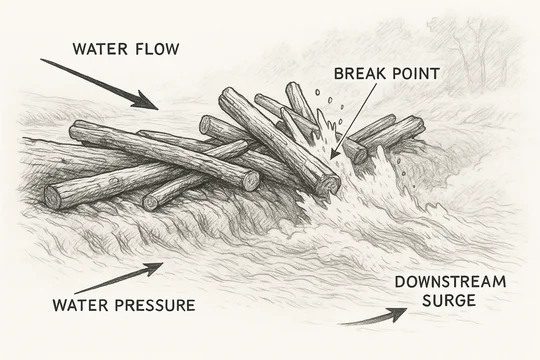
I still remember when, as a first-year associate (circa 2009), a senior attorney explained to me that courts will not hold a patent "valid," and instead will normally only say that it is "not invalid." It seemed like a bit of a silly distinction at the time, but it actually makes perfect sense, and it has come up again and again in my practice since then.
Courts do not typically hold that a patent is "valid" because that would suggest it is impervious to future challenges. Instead, courts often hold that a patent is "not invalid," i.e., that the moving party in a case before the Court failed to show that the patent was invalid due to some circumstance. That language recognizes that another party on another day might yet prove the opposite: that the patent is invalid.
This came up recently in Laboratory Corporation of America Holdings v. Natera, Inc., C.A. No. 21-669-GBW (D. Del.). In that case, the defendant had originally brought a motion to dismiss on § 101 grounds, and Judge Stark denied it. Id., D.I. 28 at 7.
Now, almost four years later and in the lead-up to trial, the plaintiff moved in limine to preclude the defendant from re-raising its failed § 101 argument:
Plaintiff "seeks to preclude Natera from presenting argument or evidence regarding patent eligibility of the Asserted Patents under § 101." . . . Plaintiff contends that such preclusion is warranted because (purportedly) "[t]he Court has already spoken on patent eligibility and has ruled that the Asserted Patents are directed to eligible subject matter."
Id., D.I. 325 at 4.
The Court denied the motion, and will permit the defendant to re-raise its § 101 argument at trial. The Court offered multiple reasons. It first denied the MIL as an improper stealth motion for summary judgment, rather than dealing with issues of evidence:
Defendant correctly asserts, and Plaintiff fails to dispute, . . . that a motion in limine should not be used to "seek[] a dispositive ruling on a substantive issue in the case." . . . Thus, Plaintiff's MIL #1 can be denied without reaching the merits.
Id. at 5. Second, Judge Williams actually went further, and explained that Judge Stark's previous ruling on this issue was not final—both because the Court can only hold a patent "not ineligible," and because the previous determination occurred at the motion to dismiss stage:
First, "courts do not declare patents to be eligible under § 101, but instead declare only that a party has (or has not) established that a patent is ineligible under § 101." . . . Second, as explained earlier, Defendant's previous 35 U.S.C. § 101 defense was raised at the Rule 12 stage. . . . Given that a different legal standard applies at the Rule 12 stage, . . . "filing a motion to dismiss [does not) necessarily prevent[] a later filing.
Id. at 6.
Interestingly, Judge Stark's original opinion on the § 101 motion, as announced from the bench in 2021, sounded pretty final:
[W]here, as here, the claims recite applying the new and improved computerized methods to practical technological improvements, such claims may be[,] and here are[,] patent eligible.
Id., D.I. 28 at 6.
Good on the defendant here, and its lawyers, for thinking to re-raise this at trial! That's a path many lawyers might not have taken, but it clearly paid off. This is also something to keep in mind for other cases that involve § 101 determinations at the motion-to-dismiss stage before ultimately going to trial.
If you enjoyed this post, consider subscribing to receive free e-mail updates about new posts.






